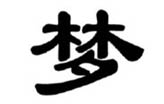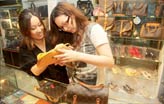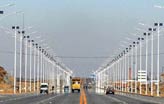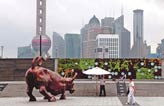It hurts to end a sale on a bad note
Updated: 2011-09-08 07:57
By Jules Quartly (China Daily)
|
|||||||||
I generally like fake goods and I'm not alone. How else to explain the continued popularity of Beijing's Silk Market among tourists, or the rip-roaring success of China's biggest online shopping marketplace, Taobao, where I recently bought two Tag Heuer spectacle frames for about 150 yuan ($23.50) - and then spent 10 times as much having the lenses put in by opticians. I reckon that I saved 4,000 yuan and even with my new glasses on I can't tell the difference between my frames and the real thing.

I'm hoping the recently launched "Four Evils" crackdown on fake goods won't affect my inclination to pay a tenth of the price for goods that are 10 times more expensive than they should be merely because they have a label on them. That said, I do agree with the need to remove fake blood products, dangerous goods and tainted foodstuffs, such as melamine in kiddy milk powder because it is a matter of life and death.
Another type of fakery I'm against is dodgy money. If I buy goods online and the seller says they are genuine brand name, I assume the merchant is having a laugh. If he admits they are copies, I tend to buy, thinking he's trustworthy. If the goods aren't up to par, I return them and write a comment telling everybody else not to bother.
But, if I pay for goods at a store and the assistant hands me back my hard-earned cash with a sorry looking face and tells me it's dodgy, then I'm irritated. I'm sure you've been in the same situation yourself. You have some options: Pass it on, turn it in, or accept the loss. It's a moral quandary, of course, but that's another story.
The top trend topic on Baidu last week was the discovery in Ningbo, Zhejiang province, that a large amount of high-quality bogus 100 yuan bills were being passed around. They were so good even the cash detectors couldn't recognize them. A clerk at a clothing store took 1,600 yuan in cash from a group of three individuals and passed it three times through the detector, which green-lighted them. It was only the next day that the storeowner discovered they had the same serial number.
Hundreds of thousands of people weighed in with their own stories of being duped. Some of them were similar to the case of my dear wife, who drew cash from an ATM, went next door to buy some milk powder and was told the cash was funny money. She went straight back to the bank and confronted them, to be told that there was no possibility whatsoever this was possible. No, the bank manager explained, cash was videoed from the time it arrived to the point it departed, there was no way it could be fake. What must have happened, he explained, was the sales clerk switched the notes.
A few weeks ago, at the office ATM, much the same thing happened to a colleague. Coincidence? I think not. But how can you argue with the proposition you have been duped when you have counterfeit currency in hand and the bank manager has a cast-iron alibi?
Obviously, the integrity of the money in circulation is critical - otherwise it would be worthless and the whole financial system would crumble - and as such, in July, a counterfeiter in Guangdong province was sentenced to death for forging notes worth 170 million. Which just goes to show that fake money is a life and death matter.
The Ningbo situation was the touch paper for heated discussion about counterfeit currency on Baidu. And while it is true that every country has the same problem, in China it is magnified because with so many fake products there is little trust in what is real.










